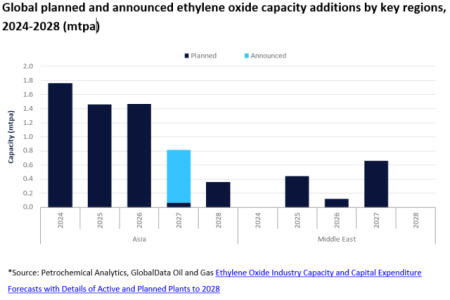 19 November 2014, Lagos – Falling prices of crude oil and other commodities and the prospect of rising global interest rates are threatening to return Nigeria and other emerging market, EM, nations to “junk” credit ratings, laying bare many countries’ failure to reform in the good times.
19 November 2014, Lagos – Falling prices of crude oil and other commodities and the prospect of rising global interest rates are threatening to return Nigeria and other emerging market, EM, nations to “junk” credit ratings, laying bare many countries’ failure to reform in the good times.
According to Reuters, emerging economies have earned roughly 200 rating upgrades since 2007, nearly half of them to the top “investment grade” category, but this year Standard and Poor’s has made around a third more EM downgrades than upgrades.
That left three of the biggest names in the EM universe – Russia, Brazil and South Africa – just one cut away from “junk”, after a decade of rising ratings that helped drive the roughly $8 trillion investment that has poured into EM stocks and bonds.
“At the moment, you have a number of triple-B credits on the brink (of junk),” Bank of America-Merrill Lynch Head of Fixed Income and Economics for EEMEA, David Hauner, said.
“The implications are bigger than of a normal downgrade. It will be interesting to see if crossover investors (who usually buy developed markets assets) will be willing to stay invested.”
While the International Monetary Fund (IMF) data showed that Saudi Arabia, Russia and Nigeria need prices above $90 a barrel to balance their budgets, the first two aforementioned countries have large currency reserves.
But Nigeria has not been able to accrue reserves between 2011 and 2014 the way it did in the run up to the global financial crisis in 2008 when it had accumulated reserves of $63 billion.
Nigeria’s external reserves stood at $36.541 billion as at November 14, according to figures from the Central Bank of Nigeria (CBN).
However, other oil producers such as Kuwait or Kazakhstan would stay in the black even at $65 a barrel.
But BNP Paribas estimates that if oil stays around $80 a barrel for the next few years, producers in the Gulf, Russia, Latin American and Africa could see their ratings cut by between half a notch and two notches – far more if it sinks to $60.
Also, Standard and Poor’s EMEA Head of Sovereign Ratings, Moritz Kraemer, stressed that the impact of such a sustained period of lower oil prices would vary from country to country.
Kraemer noted that some emerging markets – for example, Turkey – would benefit from falling oil prices.
BNP’s analysis suggests that $80 oil would see Russia, Azerbaijan and Kazakhstan lose investment grade status, while it forecast that Nigeria and other oil producers in Africa would fall deeper into junk territory.
Nonetheless, Nigeria has responded to the development, with the federal government’s announcement of a number of measures to shield the economy from exogenous shocks.
As part of the measures, the Coordinating Minister for the Economy and Minister of Finance, Dr. Ngozi Okonjo-Iweala, had said the 2015-2017 Medium Term Expenditure Framework (MTEF), which was recently submitted to the National Assembly had been revised from a budget benchmark of $78 per barrel of oil for the 2015 budget, down to $73 per barrel.
The minister had also said the federal government had decided on multi-pronged, strategic measures to engender economic growth, reassure investors and keep the economy on a stable course through the period.
According to her, the measures are designed to boost non-oil revenues further, plug loopholes and wastage in the system as well as cut unnecessary expenditure in order to cope with the situation, which are scenario-based.
But it is not all bad news. Roughly 70 per cent of EM nations are resource-hungry oil importers, meaning the 30 per cent price fall this year is a major boon.
“One thing we can say for sure, a downgrade to junk (for the major EM nations) would have a material impact in terms of flows for the whole emerging asset class,” Bank of America-Merrill Lynch’s Hauner said.
“It’s becoming a key story that we should watch for in 2015.”
Meanwhile, Fitch Ratings has pointed out that Africa’s biggest oil producers have debt levels low enough to withstand slumping crude prices, while Ghana faces risks without an aid package and Zambia from an unexpected election.
Nigeria and Angola would be able to post budget deficits for the next year or two because of their low debt, enabling them to maintain spending with lower oil prices, Director of the Sovereign Group at Fitch, Carmen Altenkirch, said.
“Nigeria and Angola have the fiscal space to run deficits in the region of 4-5 per cent of Gross Domestic Product (GDP) for a few years without undermining fiscal stability,” she said in an interview in Cape Town.
“However, if oil prices remain lower for longer, fiscal policy may need to be tightened to avoid downward pressure on the rating.”
Slumping crude prices pushed the naira to a record low this week, prompting pledges from central bank officials that they would continue using foreign exchange reserves to bolster the currency.
Fitch rates Nigeria and Angola BB-, three steps below investment grade.
“Creditworthiness would benefit from running fiscal surpluses,” Altenkirch said.
“Fiscal surpluses during the good years will give these countries scope to run deficits due to lower oil prices. Ghana and Zambia could be rated at similar levels to Nigeria, Angola and Gabon, which also pump oil, if their economies were more stable,” she said.
In a related development, the naira yesterday fell to a new record low of N175 to the US dollar in the interbank market, down 1.3 per cent on the day and extended its slump this month to almost 6 per cent as the central bank intervention failed to quell concerns about a devaluation, reported the Financial Times.
The naira has come under intense pressure this month as sliding oil prices dent the prospects of Africa’s biggest economy and largest crude oil producer.
The central bank has been forced to step into the currency market but with reserves relatively low and speculation of a devaluation rampant, it has only been able to temporarily subdue the exchange rate from time to time.
Earlier this year, all the analyst talk was of how Nigeria was now officially the continent’s biggest economy after a statistical rethink lifted it above South Africa, but now many are turning far more concerned.
In a report published on Tuesday, Deutsche Bank’s Oliver Masetti said: “As if the recent drop in oil prices was not enough bad news for Nigeria’s economy, recent data show that this summer the US completely stopped importing crude oil from Nigeria.
“This marks a dramatic reversal for Africa’s largest economy, which in 2010 was still among America’s top-5 oil suppliers and exported at its peak 1.3 million barrels per day to the US.”
Masetti pointed out that the falling US oil imports due to the “shale revolution” is a widespread phenomenon, but the slump in Nigerian imports has been very fast.
So far, the economic effects for Nigeria have been mitigated by a successful shift of oil exports towards Europe and Asia, but the current drop in oil prices poses stark challenges for Nigeria’s external and fiscal accounts and puts heavy pressure on the exchange rate.
Non-deliverable forwards on the naira, contracts that allow investors to bet on future currency movements, indicate that investors think the Nigerian currency will fall to about N200 to the US dollar in 12 months.
*Reuters



